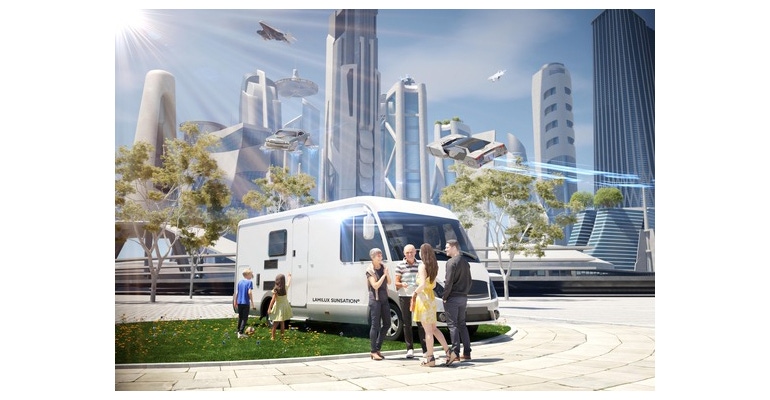The fiber-reinforced-plastics processor is one of the companies recognized for achievements in the composites sector this year by Germany’s reinforced-plastics association.
December 12, 2022

Germany’s Industrial Association Reinforced Plastics (AKV) has announced the winners in its Innovation Awards 2022, with the top three in each category — Products & Applications, Processes & Procedures, and Research & Science — being recognized.
Lamilux Composites GmbH won the Products & Applications category with its Lamilux Sunsation gelcoat technology, officially available since August 2022. With Lamilux Sunsation, the manufacturer of glass-fiber-reinforced plastics (GRP) is showcasing the world's most color- and gloss-resistant GRP face sheet and one of the most revolutionary developments in the world of glass-fiber-reinforced plastics.
Lamilux Sunsation offers up to 20 times better UV resistance for exterior applications, including in the caravan, commercial vehicle, container, and trailer sectors. The UV protection technology incorporated into the GRP material, therefore, is much more durable, requires less care, and enhances resale values.
"Lamilux Sunsation is not a polish, cream, or wax [coating], but a UV protection technology that is firmly integrated into the GRP material. This means that nothing has to be applied at a later stage," explains Senior Product Manager Sascha Oswald. "Lamilux Sunsation sets new standards in the quality of glass-fiber-reinforced plastics, because even after years in the sun, the surface still looks like new," he adds.
Optimized fiber placement
In the Processes and Procedures category, a technology developed by BaltiCo GmbH came up on top. The company’s rod-placement technology is a novel manufacturing process that expands the application possibilities of composite materials in almost all industrial sectors. Deviating from common methods, which predominantly describe flat structures, the tensioning of spatially optimized composite grids is used to achieve extremely powerful structures.
Individual strands are deposited using modern robotics technology, enabling high, reproducible quality with productivity greater than 120 kg/hour to generate structures optimized for specific applications. In particular, the development of product-specific systems offers economic potential. The process requires almost no consumables or auxiliary materials, making a significant contribution to environmental protection.
Near-net-shape fabrics
The TU Dresden's Institute of Textile Machinery and High-Performance Material Technology (ITM) nabbed first place in the Research & Science field for spherically curved fiber-reinforced plastic composite components. They are made of near-net-shape fabrics based on the take-up-free Jacquard weaving technique as well as technological know-how developed internally enabling locally different thread lengths to be woven into the fabric structure simply by varying the fabric weave in a targeted manner. This makes it possible to produce completely new types of fabric without draping, especially spherically curved fabrics, but also large-format spiral fabrics or curved fabrics.
Based on the determined interrelationships for take-up-free weaving, a calculation program for the weave pattern arrangement, and a model for shaping the fabric structure, it is possible to determine the production parameters from a CAD model of the desired preform and to produce the preform. The technology can be implemented on all Jacquard weaving machines with an additional device, and the preform geometry is only determined by the control of the Jacquard machine.
The preform geometry can occupy the full working width of the weaving machine. The technology was validated using the reinforcement structure of a spring dome receptacle and the production of a hemisphere for use in radome antennas.
About the Author(s)
You May Also Like




